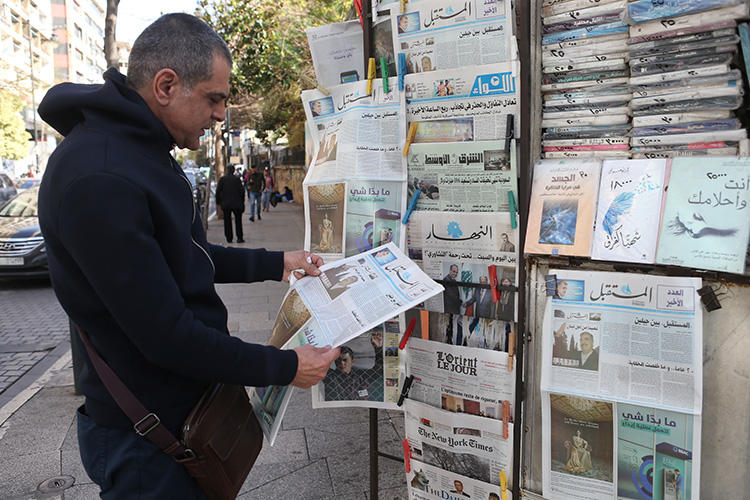On September 12, 2019, Lebanese judge Ziad Abu Haidar filed a criminal defamation suit against the Nida al-Watan newspaper as well as its editor-in-chief Beshara Charbel and managing director George Barbari, according to news reports and a report by regional press freedom group Skeyes Center for Media and Cultural Freedom.
The suit stems from a September 12 article published in Nida al-Watan that criticized Hezbollah Secretary-General Hassan Nasrallah for recently pledging allegiance to Iranian Supreme Leader Ali Khamenei. The article featured a photo of Lebanese President Michel Aoun and referred to Lebanon as “the Khamenei Republic,” which the complaint alleged was defamation against the president, according to the Skeyes report.
On September 18, acting Attorney General Imad Qabalan summoned Charbel and Barbari for questioning at the Justice Palace in Beirut and referred the case to the Publications Court, which is responsible for press freedom and freedom of expression offenses, according to Skeyes and a report by Nida al-Watan.
If found guilty under Article 23 of Lebanon’s Publications Law, which criminalizes insulting or defaming the president, Charbel and Barbari could face up to two years in jail, with a minimum imprisonment of one month, and a fine of between 50 and 100 million Lebanese pounds ($33,000 to $66,000). Publications can also be suspended for up to two months under that article.
The two journalists have a hearing scheduled at the publications court in Beirut on October 10, according to reports.
In its report, Nida al-Watan cited a statement by the paper’s defense lawyer and former Lebanese politician Boutros Harb, which said that by criticizing the Hezbollah leader’s perceived deference to Iran, the article intended to support the president and protect his constitutional powers.
CPJ emailed the Justice Ministry with questions for Qabalan and Abu Haidar, but did not receive any reply.
Salim Jreissati, minister of state for presidential affairs, told CPJ via email on October 3 that Lebanon is committed to respecting freedom of expression and belief and expressing opinions in writing is guaranteed by law. However, he alleged that Nida al-Watan’s front page referring to Lebanon as “the Khamenei Republic” is an act against the law, because it harms the relations between Lebanon and Iran and undermines the status of the state and the prestige of the president. Jreissati said that is why the editor in chief and the director of Nida al-Watan were referred to the Publications Court.
Editor’s note: The final paragraph has been updated with comment from the minister of state for presidential affairs.
